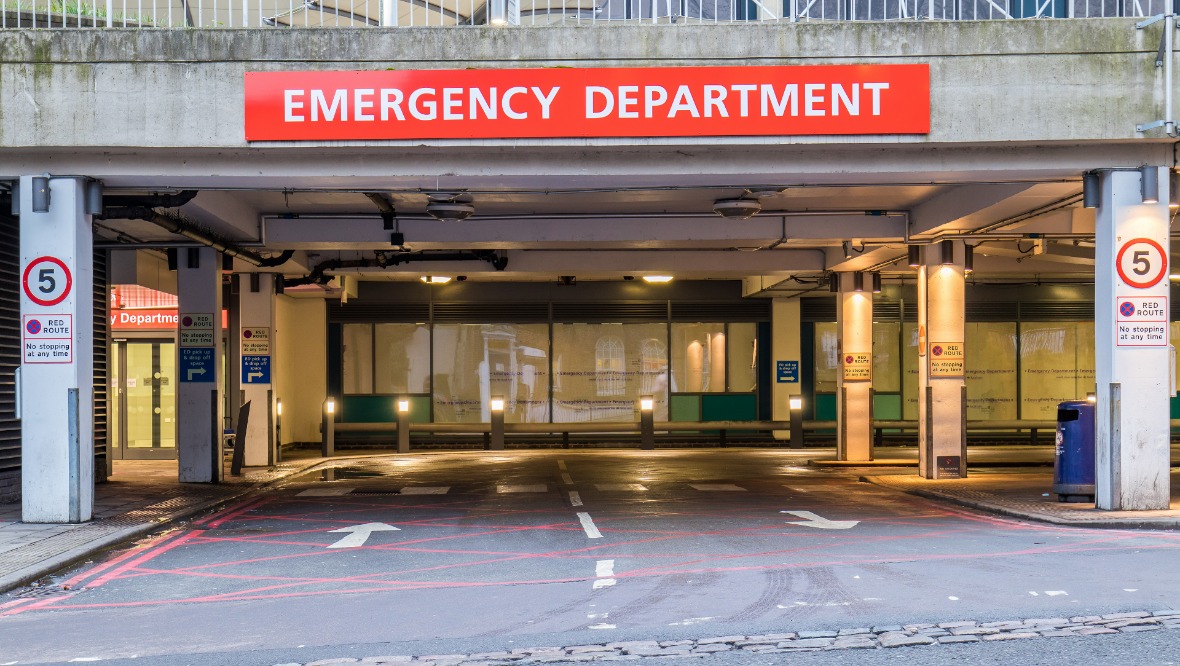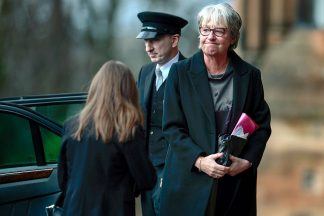More than 51,400 older patients endured stays of 12 hours or more at Scotland’s emergency departments last year – the worst on record.
New analysis from the Royal College of Emergency (RCEM) reveals in major emergency departments, one in every eight patients (51,423) aged 60 or over waited more than 12 hours to be transferred, admitted or discharged in 2024.
That’s 14,407 more patients than in 2023 and is over 16 times more people than in 2019, when just 3,135 older people endured waits of this length.
The figures, obtained by RCEM via Freedom of Information requests to Public Health Scotland, also reveal that the older a patient is, the longer they are likely to wait in A&E.
People aged 70-79 have a 12% chance of waiting 12 hours or more – almost 16 times higher than it was in 2019.
Meanwhile, people aged 80-89 have a 16% chance of enduring extreme waits, and the likelihood rises to 19% for those aged 90 and above.
Compare that to patients aged 18-29, whose average likelihood of experiencing a 12-hour wait last year was just 2.2%.
Older patients often present to emergency departments with complex or multiple health conditions. When coupled with limited availability of inpatient beds, this can result in prolonged stays in emergency departments, with many older individuals left waiting for extended periods, frequently on trolleys in corridors.
When patients do get admitted, they often find themselves stranded in hospital, unable to go home when they are well enough to leave, frequently due to a lack of available social care support.
Public Health Scotland recently revealed that in 2024/25, there was a record 720,119 days spent in hospital by patients whose discharge was delayed – 474,153 of which were experienced by people aged 75 or over. This accounted for two out of every three (66%) delayed discharge bed days.
Dr Fiona Hunter, Vice President of RCEM Scotland, said, “This data is both shocking and shameful, and it is abundantly clear that older people are bearing the brunt of a system in crisis.
“Hundreds of thousands of dearly loved people – great-grandparents, grandmas, grandads, parents – forced to experience extreme long stays in our Emergency Departments every year mainly because we don’t have enough in-patient beds to admit them to when they need one.
 iStock
iStock“Often enduring these waits on trolleys in areas that aren’t designed to deliver care in – corridors or even cupboards.
“It’s a failure of the system. It’s unacceptable, it’s dangerous and it’s putting lives at risk.
“Enough is enough. The government can’t ignore the ongoing crisis our Emergency Departments – the workforce and patients – continue to face day in, day out.
“We all deserve an Urgent and Emergency Care system that works as it should and not letting people, our most vulnerable, down when they need it most.”
Dr Bob Caslake, Chair of the BGS Scotland Council, said, “This report highlights the urgent attention that is needed across the health and social care system to allow older people to access the care they need at the time they need it.
“The current waiting times faced by older people in Emergency Departments are unacceptable, and reducing these delays is a matter of equity, dignity, and patient safety.”
Professor Andrew Elder, President of the Royal College of Physicians of Edinburgh said, “It is disappointing that this information is not routinely collected, analysed and published and it is unacceptable to see so many older people waiting hours – sometimes days – in A&E wards for the care they need.
“These older people are often living with frailty, dementia, and multiple other health conditions. They deserve to be treated with dignity and compassion. Long waits for care are neither dignified nor compassionate and can also lead to serious harm.
“This is not the standard of care we should accept for our parents, grandparents, or neighbours. With the numbers of older people in Scotland in need of care expected to increase dramatically, we urgently need a system that prioritises timely treatment and supports frontline staff in delivering the respect and care our older population deserves.”
The Scottish Government has been contacted for comment.
The figures come after the Royal College of Emergency Medicine published a report earlier this year looking at the care older people, aged 75 and over, receive in emergency departments across the UK.
RCEM also released analysis in February which found the number of people experiencing stays of longer than 12 hours in Scotland’s emergency departments last year was a staggering 99 times higher than 2011 when records began.
Follow STV News on WhatsApp
Scan the QR code on your mobile device for all the latest news from around the country


 iStock
iStock

























